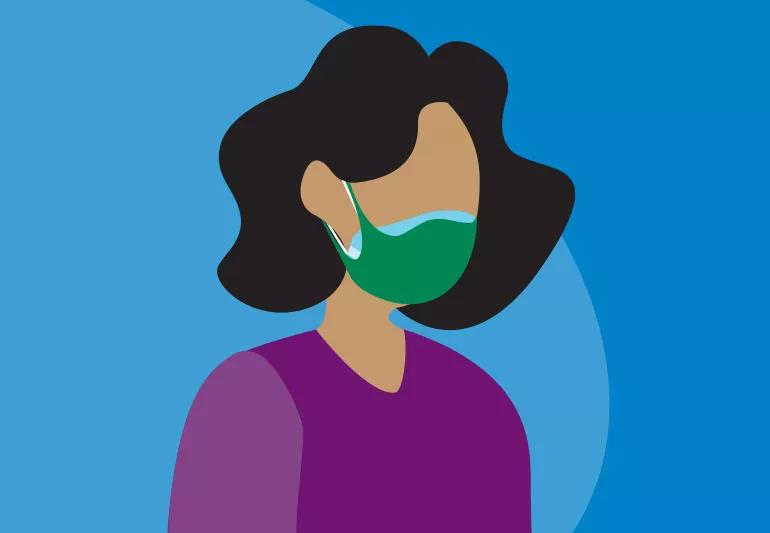Advertisement
The short answer from an infectious disease specialist

A: The Centers for Disease Control and Prevention recommends universal mask wearing as an important way to slow the spread of COVID-19.
Advertisement
Cleveland Clinic is a non-profit academic medical center. Advertising on our site helps support our mission. We do not endorse non-Cleveland Clinic products or services. Policy
At this time, the CDC recommends wearing a face mask with two to three layers that fits snugly over your face. The CDC recently published new research suggesting that layering a cloth mask over a surgical mask (double masking) when a mask only has one layer, or knotting and tucking a single mask, may improve the fit of masks and provide additional protection from potentially infectious particles.
However, if your mask already has multiple layers and fits tightly, it’s not necessary to double mask.
As the COVID-19 pandemic evolves, we’re continuing to closely monitor the latest scientific evidence and CDC recommendations regarding face masks.
Studies from the CDC have shown that face masks effectively limit spread of the virus that causes COVID-19, protecting the wearer and those around them. To slow the spread of the virus, it’s important that everyone in the community wear a face mask. It’s also essential to social distance, avoid gatherings and wash your hands frequently. We also recommend taking the COVID-19 vaccine when it’s available to you.
— Infectious disease specialist Steven Gordon, MD
Learn more about our editorial process.
Advertisement

The medication is ineffective and — in the case of animal ivermectin — potentially dangerous

Updated vaccinations are recommended to better protect against the evolving virus

Enteroviruses are often to blame for summer colds, leading to a runny nose, sore throat and digestive symptoms

Redness, swelling, itching and rash can happen when your body’s immune system reacts to the vaccine injection

Studies suggest 1 in 5 people infected with the coronavirus never develop symptoms

An increased risk of blood clots can last for nearly a year after a COVID-19 diagnosis

COVID-19 may be associated with tinnitus, but research is still ongoing

The short answer: It’s complicated, but the basic care precautions still prevail, like washing your hands and isolating if you’re sick

Focus on your body’s metabolic set point by eating healthy foods, making exercise a part of your routine and reducing stress

PFAS chemicals may make life easier — but they aren’t always so easy on the human body

While there’s little risk in trying this hair care treatment, there isn’t much science to back up the claims